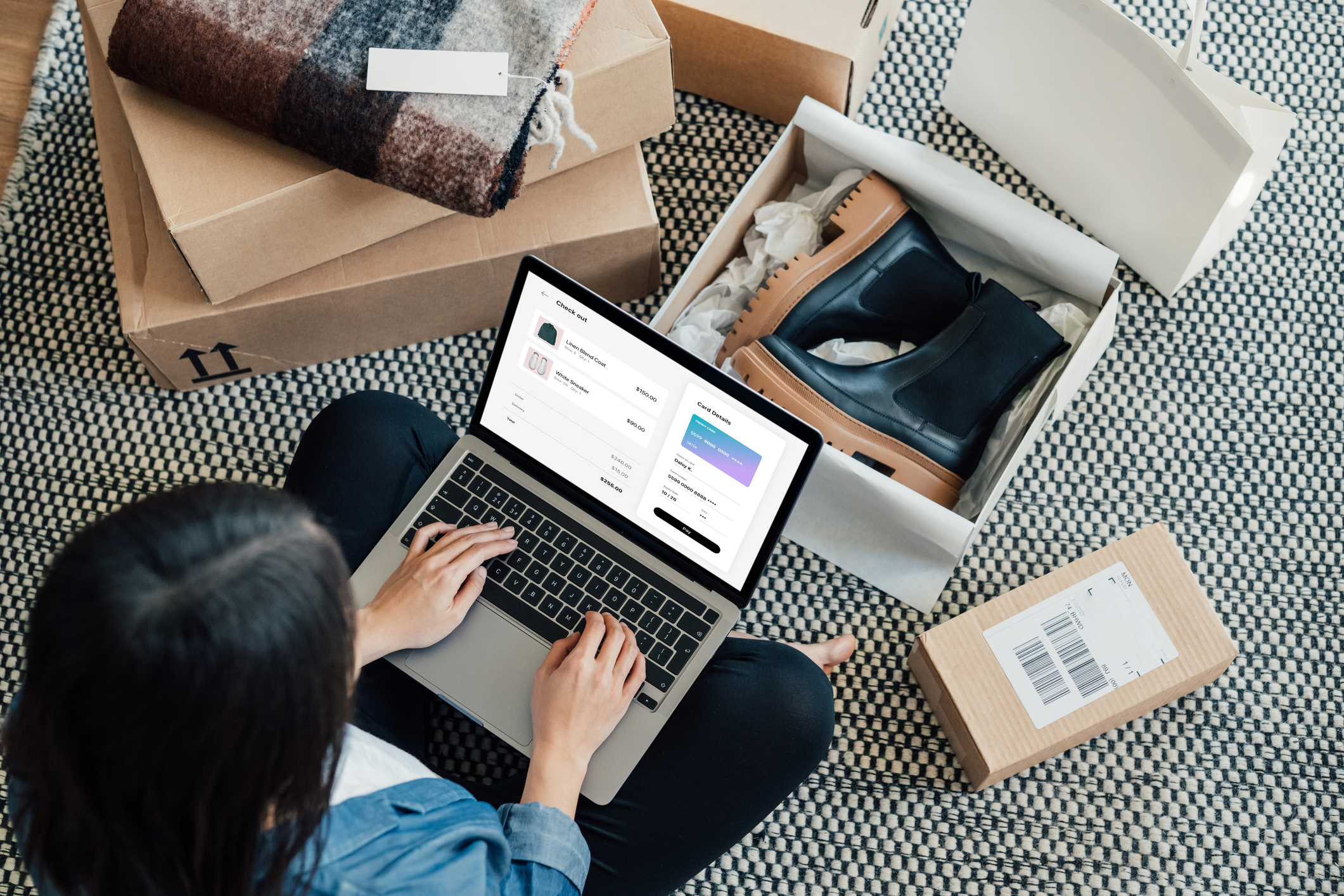It might seem harmless , but you could be doing a lot of terms .
Funflation . Slow shopping . Loud budgeting . We live in an age where there ’s a quippy term for seemingly every personal finance habit and course .
While many of these phenomenon affect us individually , others have a strong shock on the other the great unwashed in our lives . An object lesson of this is a rather subtle practice known as “ stealth shopping . ”

To help stave off its damaging effects , we asked a personal finance expert and a clinical psychologist to demote down “ stealth shopping ” and share their advice for keeping it at true laurel .
What is stealth shopping?
“ If you ’ve ever bought items secretly and hid the leverage or lied about the toll of a purchase , then you ’ve ‘ stealth shopped , ’ and it ’s more common than people might guess,”Molly Burrets , a clinical psychologist and adjunct professor at the University of Southern California , told HuffPost .
Basically , stealth shopping is the enactment of hold in something you ’ve buy from your significant other . This is different , of line , from bribe endowment as a surprise or just purchasing items on your own and having self-sufficiency over your bank accounting . Rather , it ’s designed secrecy around bigger or recurrent purchases that move your home .
“ Stealth shopping often happens to avoid conflict about spending habits , or to pass without being judged by your spouse , ” Burrets explained . “ That sound judgment might be about the amount of money expend , the content of what is purchased , or the absolute frequency of purchases . ”

She noted that some the great unwashed shop to relieve strain or get a Dopastat boost , which can palpate gratifying .
“ But when this coping strategy is overused , it can become a part of an habit-forming pattern , where someone hides their shopping due to shame or self-abnegation , ” Burrets added .
There are other serious implication to stealth shopping .

“ While some people may jest about concealing purchase from their partners , the realism is that being close about money is never healthy for a family relationship and can conduce to more serious issues down the road from both a fiscal and romantic point of view , ” say consumer finance and budget expertAndrea Woroch . “ Stealth shopping may seem harmless in the minute , but it can be a sign of a magnanimous financial trouble like determined shopping . ”
If you ’re interested about your partner seeing your purchases , that might be because you ’re overspending , which can lead to debt and jump your fiscal goal . Stealth shopping can also be a shape of financial unfaithfulness .
“ Most forms of dishonesty or dissembling in a family relationship are harmful , and stealth shopping can signal an rudimentary problem with communicating , trust , or financial accountability , ” Burrets said .
How can you overcome stealth shopping?
“ Speak openly with your partner about your finances to figure out how you’re able to align your goals and budget , ” Woroch said . “ mass enjoy different thing , so how you expend or what you buy should n’t be the issue as long as you are following a budget and attain your saving goal , or other goals like paying down debt . ”
She advised building “ fun money ” into your budget ― an amount you and your partner can spend each calendar month on whatever you want without assessment . The idea is to feel free to spend this set amount as you please without interest about what your significant other might guess or say .
“ I urge that couples who share monetary resource agree on a outlay limit for purchase outside of what ’s budgeted , ” Burrets said . “ This offers each partner a degree of fiscal freedom that is goodly . And for purchases larger than the agree - upon amount , make it a rule to discuss those leverage together . ”
She also recommended that couples who partake monetary resource have full entree to all story to look back transactions and keep thing transparent .
“ There are also many apps that promote visibility and accountability by make it easier to track spending , ” Burrets suppose .
Be open and transparent about any financial issues that arise ― whether internal or external .
“ If shopping is used as a coping mechanism and you find yourself overspend , confide in your partner and require for avail and answerability , ” Burrets urged . “ Sharing vulnerable and difficult feeling is the antidote to shame , and termination in increased closeness in healthy human relationship . Together or on your own , speaking with a professional can aid address underlying emotional needs that are being receive by unwise spending . ”
work through these issue can help you identify expenditure triggers that lead to impulse purchase and do what you demand to void compulsive shopping .
“ entrust credit cards at habitation and only shop with your budgeted amount in cash so you ca n’t pass any more than you bring with you to the computer memory , ” Woroch suggest . “ you’re able to still earn rewards , though , by using a free rewards app likeFetchthat pay you cash in back when you upload motion picture of your revenue , regardless of your payment method . ”
It ’s important to note that stealth shopping might indicate an even more serious issue than a compulsion to overspend .
“ Some people stealth shop class because of a toxic stage of command in the relationship , where they do n’t have the exemption or agency to spend money , even wisely or within healthy limit point , as they wish , ” Burrets said .
If you ’re stealth shopping simply to hide normal purchase from an overly controlling partner , you should take a different attack . Rather than curbing your nonexistent overspending , search helper from a trusted loved one .
“ These scheme are helpful only in goodly relationships where one or both people actually have damaging or problematical disbursement wont , ” Burrets emphasized . “ Using money as a means to control your partner , either by confine their access to money or not permitting any level of financial privacy , is toxic and potentially abusive . ”
Need help with substance use disorder or mental wellness outlet ? In the U.S. , call 800 - 662 - HELP ( 4357 ) for theSAMHSA National Helpline . This article originally appeared onHuffPost .